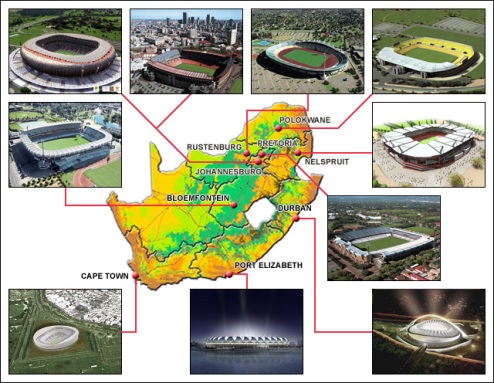The PropertyInvesting.net team visited 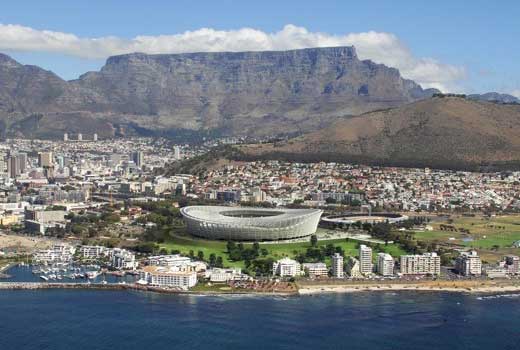 you have to “watch your back” and “don’t be too trusting”. As we have described before, the retiring babyboomers with high net worth have been looking for select properties with sea views, sun, sand, sailing, scenery for many years now. Most of the British arriving at
you have to “watch your back” and “don’t be too trusting”. As we have described before, the retiring babyboomers with high net worth have been looking for select properties with sea views, sun, sand, sailing, scenery for many years now. Most of the British arriving at
You have all this beauty on the coast road from
The
The economics of 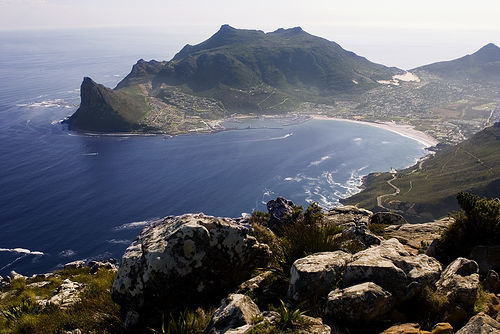 lems don’t seem to be getting any better. So South Africa is not without its risk though any property investor visiting Cape Town and seeing Table Mountain, the Seven Apostles and all the beautiful beaches, wildlife, wineries, sun, sand, sea, scenery and culture will feel like buying a property - but be careful.
lems don’t seem to be getting any better. So South Africa is not without its risk though any property investor visiting Cape Town and seeing Table Mountain, the Seven Apostles and all the beautiful beaches, wildlife, wineries, sun, sand, sea, scenery and culture will feel like buying a property - but be careful.
House prices rose by about 12% in 2007 and 9% in 2008 but are now dropping because of the global downturn - retail prices in inflation was 10% in 2008 and is also dropping to ca. 5% currently. Interest rates peaked at 15% in 2008. As you can see, the real price increases are only slightly above inflation - with the Rand exposed to weakness against the pound, Euro and dollar, it's a relatively risky place to attempt to make serious money, if you are from a country with a strong currency.
Prices rose the strongest in
Other developing cities are
Price have now declining in most area – so the big boom of the last 6 years has ended – if you invest in South Africa, it will undoubtedly be a bet on the strength of the Rand. And any hike in oil price will hit the country hard – or taxes on airline fares (carbon tax) in view of the distance from Europe, Asia an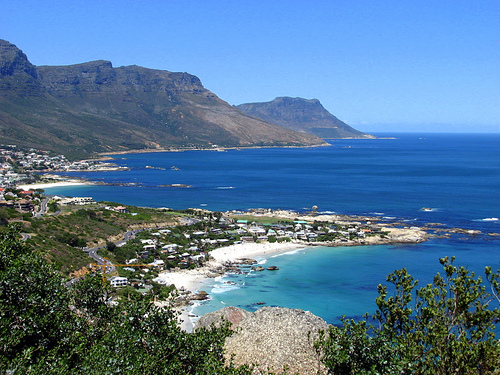 d
d
Add to this the increased political risk from instability in the ANC party, problems controlling immigration from other African countries and an uncertain net migration of wealth to Europe, although the situation at present is relatively stable, the downside is quite large, albeit the economic upside is also quite large.
Problems were encountered Jan-Feb 2008 with power cuts, related mine closures caused by the cuts and some political turbulence - however, things rapidly improved by mid 2008 and things have been far more stable since. But it does highlight the uncertainties - and challenges the country has with power, exposure to high oil prices and reliance on high metals commodity prices, manufacturing and long-distance tourism for its economy.
If oil prices skyrocket again, and airline travel costs rise, or the world stays in recession many years, South Africa could be hit hard. 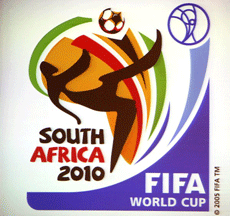
But the Football World Cup in 2010 will likely boost prices in the main cities – Cape Town will see a big new stadium being build about 1 mile south-east of the harbour / marina - properties close to the action are likely to see values rise at a higher rate than the average area.
So overall – if you want a retirement home in the sun, it’s a great place being in the southern hemisphere – but for serious property investors, it might be best to focus are areas in Europe, Asia or USA close to where you live. Its more manageable and easier to pick up below market value property on an ongoing basis. And you wont have to worry about currency fluctuations.
We provide some hopefully useful resources below that can be used to map-identify the best investment areas - choosing low crime areas is important, along with regenerating areas possibly close to a World Cup stadium.
World Cup 2010 Stadium Locations
